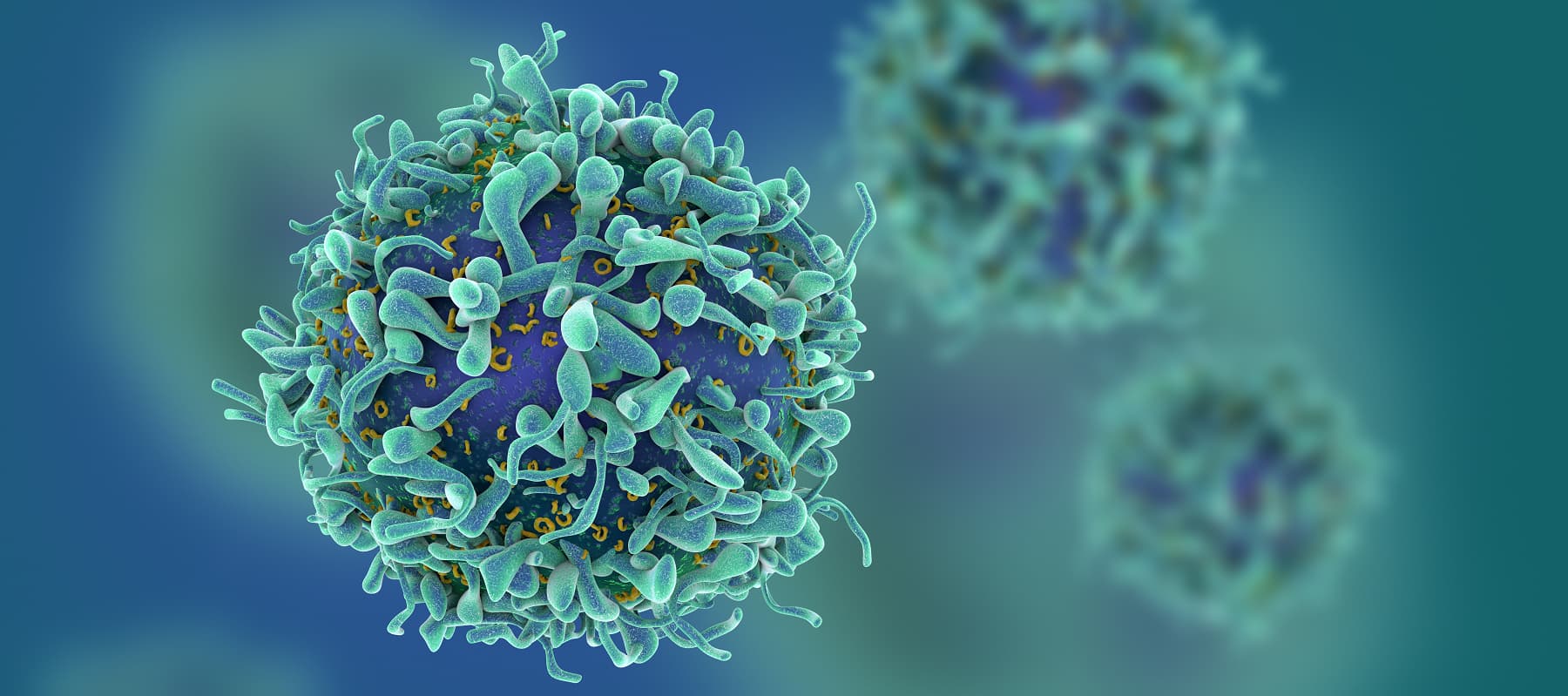
Genetic Screening Projects Make Japan A Rising Option For Clinical Trials
Recent advances in genetic analytic technologies like next generation sequencing (NGS) and multiplex polymerase chain reaction (PCR) have reduced both the costs and time needed to detect gene mutations and have also made it possible to develop personalized cancer treatments based on the results of a genomic analysis of individual patients. Taking advantage of this, Japan’s largest pharmaceutical contract research organization (CRO), CMIC, is participating in two important genetic screening projects. Both are focused on oncology, which is the main therapy where genetic screening can address unmet needs in Japan and the wider Asia-Pacific region.
The first project, HM-SCREEN-Japan, started in 2019 and is focused on acute myeloid leukaemia (AML, or blood cancer). The ultimate aim is to examine gene mutations in Japanese AML patients and use the data to promote the development of drugs to treat it.
The thinking behind it reflects some recurrent issues in drug development in the Japanese market. “In Japan, there are problems of drug-lag, in which new drugs developed overseas are introduced late, and drug-loss, where they are not introduced at all,” says Dai Nagaki, clinical project manager for CMIC’s CRO business.
“There are several possible reasons for this situation. In the case of AML, drug development progresses because of gene mutations that are matched with particular drugs. The number of candidates for personalized treatment in Japan is limited because of the small number of AML patients compared to the US. Therefore, we assume that overseas companies are hesitating to conduct development in Japan.”
Two studies have been conducted so far within HM-SCREEN Japan and some results have been reported at scientific meetings, including the American Society of Hematology Annual meeting in 2020. The common types and some of the specific characteristics of gene mutations in Japanese patients with AML have become clearer but there are few drugs available at present that can address these mutations. Therefore, Nagaki says, “We need to consider how we can encourage the development of such drugs in Japan and are looking to collaborate with other companies to develop new drugs out of the results of HM-SCREEN-Japan.”

Wider scope of second project
In January 2023, CMIC became the first CRO to join the LC-SCRUM-AP screening project on non-small cell lung cancer, which is jointly run by National Cancer Center Hospital East and Precision Medicine Asia (PREMIA). This project started as LC-SCRUM-Japan but has since been widened out to the wider Asia-Pacific region.
Study sites are currently being activated and the infrastructure established. Multiple institutions in Thailand, Malaysia, Vietnam, Singapore, Indonesia, Australia, and Taiwan, will participate. The timeline is not fully decided yet, but subject enrolment has already been initiated at the institutions in Thailand, Malaysia, and Taiwan.
“Across different countries, genetic mutations can vary with ethnicity and the degree of intervention, among other things,” Nagaki says. “Depending on the characteristics of the agents imported for use in clinical trials, there could be a very low expression rate of genetic mutations, and this could be a big hurdle within the trials. If decentralized clinical trials (DCTs) are recognized and implemented in Asian countries, a patient located in non-active-site countries could participate in the clinical trials. We are bringing over the screening bases we had in LC-SCRUM-Japan to other countries as well.”
“The ultimate aim is to develop precision medicine in Asia-Pacific by establishing a genomic screening infrastructure for the region,” says Yuki Kinugasa, clinical leader at CMIC. “This will make it possible to conduct genetic screening on a larger scale and accelerate the development of new molecular targeting agents for various genomic alterations.”
“Based on the accumulated database of gene mutations, CMIC can support pharmaceutical companies in development strategies for new drugs. For example, we could suggest countries and study sites where clinical trials should be conducted, based on the database. If a specific gene mutation is identified by LC-SCRUM-AP, the patient may be able to enroll in the trial. And, depending on the situation, patients might be able to receive unapproved drugs by joining trials.”

In the longer term, genetic screening studies like these may help to make some drugs more widely available in the region. Many drugs targeting alterations in EGFR, ALK, ROS1, BRAF, NTRK, MET, RET, and KRAS have been approved in Japan so far, but the picture is patchy elsewhere in Asia-Pacific. For example, lung cancer patients in Japan usually undergo tests for the relevant gene mutations, while in Thailand erlotinib is the only approved EGFR inhibitor, and ROS1, RET and other gene mutations are not tested.
Precision medicine, adds Kinugasa, is not as widely understood and established in some Asia-Pacific countries as it is in the US and Japan. By integrating the databases of LC-SCRUM-AP and LC-SCRUM-Asia, successor to LC-SCRUM-Japan, and creating a clinical genomic database for the region, “large-scale, real-world data will be accumulated, and it is expected to contribute to the development of precision medicine.”
Moreover, he continues, the expression rate and specificity of gene mutations vary depending on ethnicity and region. “It’s important to treat patients according to the characteristics of new drugs. The frequency of each of these genomic alterations is rare, so that often makes it impossible to conduct trials efficiently. When DCT and other technologies develop more, it may be possible for patients from other countries to participate in this study, so it’s very important to accumulate data.”
Takashi Asahi, executive vice president for the CRO business at CMIC, adds: “There are lots of identified gene mutations. With this in mind, it is important for the investigator and us to identify the gene mutation fast when the clinical trial for new drug is started, as the patient will get the opportunity to take the precision medicine. In addition, if the PCR is negative, PREMIA will conduct NGS. Therefore, even if the specific mutation is not identified by PCR, another mutation will be identified by NGS, and the patient will be able to join the new clinical trials. That’s why it is important for us to conduct these kinds of trials.”
Opportunities in Japan
CMIC itself sees opportunities arising for non-Japanese companies in clinical trials in Japan as a result of these studies. For example, bone marrow transplants are still the first line of treatment for AML, but more than half of the patients cannot get these for reasons of age and have to take whatever drug treatments are available. With Japan’s ageing population, the number of AML patients needing drug treatment will grow and this could be an attractive market for overseas companies. There is also potential for expanding the scope of research to other types of lymphoma.
“The sites participating in HM-SCREEN are treating a large number of AML patients and are active in research and other clinical trials,” Nagaki says. “Although the number of AML patients is small, CMIC can use the data obtained from HM-SCREEN to consult on realistic development strategies, request patient referrals to participating study sites when conducting trials, and offer more to pharmaceutical companies who are considering entering the Japanese market and want to get realistic data on the number of patients and specific mutations. In addition, since many of the participating medical institutions in HM-SCREEN are capable of conducting early phase trials, CMIC can introduce the investigator’s site to conduct the lead-in study to Japan, including first-in-human (FIH) with HM-SCREEN.”
Asahi notes that the Japanese PMDA has been slower to approve to new drugs than the US FDA or the EMA in Europe. This situation has been improved, although PMDA consultations take longer. With regard to clinical trials network preparation there are some challenges, such as the time is needed to translate documents into Japanese.
About half of approved drugs in the US are still not approved in Japan. This situation could change if a patient’s gene mutation could be identified, and overseas pharmaceutical companies could access a large database. In the last few years, CMIC has seen an increasing number of in-country clinical caretaker (ICCC) projects where it accesses clinical care in Japan for overseas companies.
The biotechs who are increasingly dominating in the development of new drug candidates rarely have operations in Japan and have generally shied away from Japan for testing because it not cheap or fast. Particularly in view of the recent passing of the Inflation Reduction Act in the US, Asahi says, the Japanese health care market may be more open to them. “Therefore, we need to tell people that the Japanese market may be more attractive than they think.”

The COVID-19 pandemic has also contributed indirectly towards creating new opportunities for companies looking to conduct clinical trials in Japan. At the start, when the government first announced a state of emergency, there was a temporary suspension of patient enrolment and delays in initiating new clinical trials. Patients became unable or unwilling to visit study sites, while clinical research associates (CRAs) were often unable to do so.
“Each CMIC trial manager acted based on the discretion of the sponsor, referring to the guidance from PMDA. Now that COVID-19 has subsided, efficient monitoring methods remain,” says Kinugasa. “For example, they acted to establish remote monitoring environments, such as remote source document verification (SDV) and online meeting, to contact and manage a study site remotely without visiting it. There are no more obstacles to conducting monitoring in these ways, which were almost unknown before COVID. All of these new ways of conducting trials are continuing in Japan and it is a positive thing for us and our potential overseas clients.” 1
Conclusion
Advances in genetic screening are opening up many new avenues in drug development. Two ongoing genetic screening projects in Japan and Asia-Pacific are prime examples of this, targeting therapies where there are considerable unmet needs that are certain to grow. These projects and others like them will also create opportunities for pharmaceutical companies to conduct more clinical trials in Japan and the Asia-Pacific region.
Reference:
1. White Paper, Evolving Trends of Decentralized Clinical Trials in Japan, December 2020
- CMIC CEO/COO leadership interview article
- Roundtable Discussion Report: The Benefits of Clinical Trials in Asia Are Significant if Done Right.